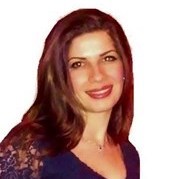Q: To start us off, can you tell us how you chose the Stanford-Vituity Neurohospital Program for your Neurology fellowship?
Shahla Moghbel, DO: Yes. I was interested in a very specific field of clinical neurophysiology called intraoperative neuromonitoring. Physicians in this subspecialty monitor risky surgeries to ensure that the brain, nerves, and spinal cord are protected.
When I interviewed for the intraoperative neuromonitoring fellowship at Stanford Medicine, they told me about the additional opportunity with Vituity. It would require a second year of study, and at first I wasn’t sure I wanted to delay my clinical practice for so long.
But then I had second thoughts. I had served as the administrative chief of my residency program because I’ve always been interested in the business side of medicine. I believe that in order to improve patient care, it’s essential to have some administrative and leadership skills.
When I expressed interest, Stanford put me in touch with Dr. Yafa Minazad, [DO], Vice President of Operations for Acute Neurology at Vituity, who was extremely helpful. She’s very respected in the clinical neurophysiology field, and she helped me see that completing a two-year fellowship with Stanford and Vituity would be a great investment in my future.
Q: It’s really brave to dive right into a two-year fellowship in Neurology. Did you have any worries before starting?
SM: I wasn’t worried about the year with Stanford, because I knew they’d had many fellows before me who usually had great experiences. I did feel hesitancy about the Vituity year, because as you know, I'm the first neurology administrative fellow, so there were some unknowns.
Fortunately, Dr. Minazad reassured me that the Administrative Fellowship program had been running for many years in other specialties and that it had a great track record for lifting physicians into early leadership. She assured me that it was going to be a worthwhile experience for me. And it is.
Q: As a neurology resident, how familiar were you with the partnership model?
SM: I think the idea of partnership is a mystery to many residents. When our class heard about practice models, the speakers tended to paint an inaccurate and somewhat negative picture of partnership. For example, they told us we’d have to “buy in.” They also talked about ownership being “risky.” So it’s no surprise that many residents aren’t comfortable with the idea of partnership, because they think it’s going to be a lot of work.
However, I think if residents could experience our Vituity partnership, they’d feel differently. We all became physicians to improve patient care, and we can’t do that by simply showing up and working clinical shifts. To make meaningful change, it’s also necessary to understand the business and administrative aspects of healthcare. Being part of a physician-owned and -led organization has helped me to better understand the challenges facing hospital clients and patients and how we can help.
Q: How has the Administrative Fellowship at Vituity supported your career development?
SM: Admin fellows get amazing access to Vituity’s executives. We attend all leadership and board meetings and meetings related to our practice lines. In most organizations, it would take years, maybe decades, to have that sort of exposure to the national practice leadership. But as fellows, we get to be at the table while they discuss their visions, their challenges, and the future direction of Vituity.
Residency is very focused on clinical care, as it should be. But through my fellowship, I’ve realized that there’s so much more to patient care. I’ve been exposed to billing, quality programs, advocacy, payer relations—the list goes on. The patient is still at the center of everything we do, but the picture is now much bigger.
Q: How did the fellowship help you to develop your leadership skills?
SM: Administrative fellows complete all of Vituity’s leadership development programs, including the Medical Director Academy, the leadership and case series, didactics, communication and risk management courses, and the Women in Medicine Leadership Seminar. Many of these programs are normally reserved for physicians with a few years of experience. As a first-year attending, it’s exciting to have the mentors coach us through real-life problems that can arise in our practices.
Overall, the Medical Director Academy was the most valuable experience for me. It addressed how to use your team effectively and also how to use Vituity practice management as a source of support and resources. Even though I’m not a medical director yet, I use many of the lessons I learned about communication, motivation, and creative problem solving in my daily practice.
Q: You mentioned earlier that Dr. Yafa Minazad has been a mentor to you. Who else has had an influence on your career this year?
SM: One of the best parts of the fellowship is having amazing access to the program faculty. There’s so much experience to learn from, and I felt like they took a personal interest in my career growth. I’d especially like to thank fellowship directors Dr. Tiffany Hackett, [MD], and Dr. Seth Thomas, [MD], who meet with the fellows weekly. They were constantly inspiring us and showing us how to be better leaders, clinicians, and business people. Furthermore, I would like to thank Dr. Yafa Minazad for being an amazing role model and a great support.
Q: Can you tell us about your fellowship project?
SM: The goal of my project is to educate C-suite hospital administrators about clinical neurophysiology and the value of neurodiagnostic testing. My mentor, Dr. Minazad, and I want to show hospitals that investing in these tools and services will improve care quality. We also work with our current hospital clients on their diagnostics to expand their neurology care capabilities.
We’re currently developing educational webinars that will allow us to reach more healthcare leaders and interact with them. These webinars are also open to Vituity medical and regional directors with the hope that they will use these services to improve care in their emergency, inpatient, and critical care departments.
Q: In just a few months, you’ll be starting your intraoperative monitoring fellowship at Stanford. What do you hope to get out of that experience?
SM: Stanford is one of the best fellowships in the country for IONM, so I’m looking forward to learning from the best. My long-term goal is to help Vituity to expand our intraoperative monitoring solutions. This technology is currently underutilized almost everywhere, and it can improve patient care in so many ways. So there’s definitely an opportunity for Vituity to take the lead in bringing these services to hospitals.
Q: I understand that Vituity is also looking for its next neurology administrative fellow.
SM: We’re currently developing relationships with potential candidates for the next few years. Vituity’s neurology admin fellowship is unique in that it involves a two-year commitment—one year with Vituity and one with Stanford. But we’re already getting a significant amount of interest!
Q: What would you tell senior residents about the benefits of Vituity’s Administrative Fellowship?
SM: I would again emphasize that Vituity is a physician-based partnership, and that as a fellow, you will have a voice in your practice. As partners, we work together for better patient care and to promote the success of our partnership.
As fellows, we have a unique opportunity to immerse ourselves in the administrative, leadership, and business parts of medicine. During residency, we barely notice that this side of healthcare exists. But when it comes to helping patients, it’s every bit as important as clinical care.
Finally, when choosing a fellowship, it’s important to consider cultural fit. Vituity’s Administrative Fellowship is best for physicians who are proactive, hands-on, interested in leadership, and have a drive to improve patient care that goes beyond clinical practice. It’s also important to be a collegial person, because Vituity’s culture is very collaborative and supportive of fellow physicians.
Q: Thanks so much for talking with us, Dr. Moghbel. I have a feeling we’re going to be hearing your name a lot over the next few years.
SM: My pleasure! And yes, I hope so too.
Find more information on Vituity Fellowships and how to apply.
Originally published March 6, 2020























